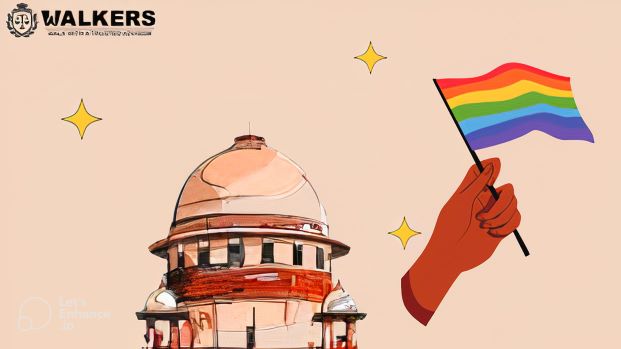


Maulana Mahmood Madani, acting on behalf of Jamiat Ulama-i-Hind, has filed a plea opposing the recognition of same-sex marriage in India. The organization, which is headed by Madani and has ties to the Muslim community, has argued that marriage between opposite sexes has always been an integral part of India's legal framework. Madani, who is also a former Member of Parliament, has requested the court to dismiss the petitions seeking legal recognition for same-sex marriages in India.
According to the intervention application filed by Jamiat Ulama-i-Hind, marriage is not simply the legal recognition of a union between any two individuals, but a concept rooted in established societal norms. The organization argues that the recognition of marriage cannot be subject to variable notions based on newly developed value systems emerging from different worldviews. The application further states that marriage between opposite sexes is a fundamental aspect of India's legal regime, with numerous statutory provisions ensuring such marriages and related legal rights, including inheritance, succession, and tax liabilities. Therefore, the concept of marriage between opposite sexes is a basic feature of the institution of marriage, which leads to the creation of a bundle of rights.
In its intervention application, Jamiat Ulama-i-Hind has contended that petitions seeking legal recognition for same-sex marriages in India are undermining the stability of the institution of marriage by introducing a free-floating system that goes against established societal norms. The application goes on to argue that countries that have legalized same-sex marriages have done so only after reaching a certain threshold of social order in terms of education, literacy, and societal acceptance. Therefore, the concept of same-sex marriage cannot be introduced in India, where societal norms and values are different from those of other countries. The application maintains that legalizing same-sex marriages would lead to social chaos and erode the foundation of the institution of marriage in India.
It states- The intervention application filed by Jamiat Ulama-i-Hind also cites various religious beliefs to argue against legal recognition for same-sex marriages in India. The application notes that among Hindus, marriage is considered a religious sacrament in which a man and a woman are bound in a permanent relationship for physical, social, and spiritual purposes, including dharma, procreation, and sexual pleasure. According to the application, the aim of marriage among Hindus is not merely physical pleasure or procreation, but spiritual advancement. In fact, marriage is considered one of the sixteen sanskars or sacred rituals that mark various stages of a person's life. The application concludes that same-sex marriage cannot be permitted in the Hindu religion and that legalizing such marriages in India would be contrary to established religious and cultural practices.
The intervention application filed by Jamiat Ulama-i-Hind argues that the prohibition of homosexuality in Christianity and Islam has been categorical since the inception of these religions. The application states that a study of the Islamic paradigm regarding gender and sexuality reveals a clear and fixed principle of only two biological genders. According to the application, the Western sexual liberation movements, which have influenced the present ideas of sexual morality, have been defined by nearly all staunch atheists. As such, the application maintains that the atheistic worldview should not be allowed to create any space within the religiously governed personal laws of communities. It concludes that legalizing same-sex marriages in India would be contrary to established religious beliefs and cultural practices. The petitions seeking legal recognition for same-sex marriages are scheduled for final disposal and hearing before a Constitution Bench on 18 April 2023.
TAGS: Intervention application Jamiat Ulama-i-Hind prohibition of homosexuality Christianity Islam Islamic law Western sexual liberation movements atheistic worldview religiously governed personal laws legal recognition for same-sex marriages Constitution Bench final disposal hearing.